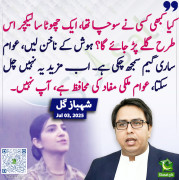BlackRock
MPA (400+ posts)
HOLA
Writing cannot express all words, words cannot encompass all ideas.
- Confucius
Language is the means of getting an idea from my brain into yours without surgery.
- Mark Amidon
When I use a word [...] it means just what I choose it to mean neither more nor less.
(ek bhaashaa kii boli doosrii kii gaalii)
A normal word in one language is an abusive word in other language.
At early school one of the few subjects that interested me was Geography. It was cool reading about different lands, different hemispheres, and different poles and so on and so forth. One of the basic things that we learnt in the very beginning was the idea of the four cardinal directions. I bet youre also familiar with the East-West-North-South (any combination of these words is valid) kind of a thing. You as well as I also know that the sun rises in the East and sets in the west and all the other bla-bla.
I particularly fancied this cardinal direction thing, because it was helpful in finding your way if youre clueless about where you were. Frankly speaking, when I was at early school, maps were pretty 2D, so it was no problem spreading out a map and to be assured that Japan was the most Eastern land and that USA was the most Western. So for me the sun went down beyond USA and then somehow travelled behind the map to rise again close to Japan.
A little time past I came across a new understanding called Eastern and Western worlds, Eastern and Western cultures, people, languages and much more. There was also a division between Northern and Southern inhabitants, but the West East correlation was more elaborate. Living at a country situated somewhere near the center between East and West it was not difficult for me to divide my world into two: all that was situated towards Japan from us was Eastern and everything Situated towards the USA was Western.
This pseudo understanding of the world bisection remained affirmed in my mind until I started travelling around the globe. The best thing about travelling is that you often get a chance to be all by yourself and think about things that you cant think about in a company. Once being in LA I suddenly realized that my vertical bisection of the world was not right, because I bisected my world being in the center, but if I would bisect my world being in LA then Japan would be Western and UK would be Eastern. (Sorry Brits if I offended you by calling you Eastern.)
At that point I understood that geographical West and East could not be fixed and no geographical bisection was possible, but the ethnical and cultural worlds did have a clear boundary. I just had to redraw the cultural meridian.
Whenever you meet someone, what is the first thing that you say or hear and respond to? Of course the first thing you utter or respond to is the word or phrase categorized as SALUTATION. Now this single word is enough to draw our meridian. Let me first acquaint you with few of the SALUTATIONS from different parts of the Eastern world:
Japanese ??? (konnichiwa)
Korean (annyeonghaseyo) - formal
(annyeong) - informal
Chinese ?? (n? h?o), ?? (nn h?o) - frm
Hindi ?????? (namaste)
Indonesian Selamat siang
Malay Assallamaleicum
Persian (salm) ????
Russian ???????????? (Zdravstvujte)
Arabic, Urdu (?ss?lam 'alaykum) ?????? ?????
Hebrew (alom) ????
Serbian ?????? (Zdravo)
Bulgarian ????????? (Zdravejte)
Now these are some of the SALUTATIONS used in countries traditionally known to be Eastern. There is one thing common among all these SALUTATIONS and that is the fact that all of them have some wish embedded in them.
For example the SALUTATION in Arabic, Urdu, Uzbek and Even Persian means May peace be upon you. The Hindi greeting means I greet the God within. The Hebrew greeting means May you be well. The Russian, Serbian and Bulgarian greetings mean Wish you to be Healthy.
The Chinese greeting has a whole story behind it. Although we always translate n? h?o as Hello, but in fact it means Are you hungry or Do you wish to eat. This tradition of n? h?o dates back to the ancient times when there was widespread famine in China. So when someone came to visit you or if you wanted to greet someone you always offered food. Keeping in view the fact of famine and scarcity of food, one can understand that n? h?o literally means Im ready to give you the most precious that I have, which means once again that SLAUTATION is more of a wish and a sign of readiness to give or share.
This tradition of wishing health, fortune, food and luck as a starting point of a conversation shows how selfless are the people of these territories. We can see very clearly that the basis of these cultures are laid in not taking but giving and that SALUTATIONS reflect the inherent benevolence and the importance of the same in these cultures.
Now lets take a look across the table, I mean lets move to the West.
English Hello, Hi, Hey.
French Salut.
Spanish Hola
German Hallo
Italian Ciao
Portuguese Ol
Greek ???? ??? (Yi sas)
Gaelic Hal
Finnish Moi
Swedish Hej / Hall
Danish Hej
Dutch Hallo
Czech Ahoj
Well all the SALUTATIONS listed in the above table are used in the corresponding languages and are the basic common greetings. They all literally mean HELLO in English.
According to the Oxford English Dictionary, hello is an alteration of hallo, hollo, which came from Old High German "hal, hol, emphatic imperative of haln, holn to fetch, used especially in hailing a ferryman." It also connects the development of hello to the influence of an earlier form, holla, whose origin is in the French hol (roughly, 'whoa there!', from French l 'there').
The above explanation means that in the Western languages people normally just shout at each other as a greeting. In the languages of the East such expressions (call outs, shouts) are also present, but are used only to call the animals or when one wishes to annoy or disgrace the addressee. Like in Russian they say ?? (AYE), when they call someone with disdain, scorn or disregard. Similar insulting calls are present in all other Eastern languages.
What this means is that the Western culture(s) is(are) totally self-centered. When they see someone they dont wish anything, because they like to keep everything for themselves, all the health, wealth and fortune. Its not a secret that the Western culture(s) is(are) thousands of years younger than the Eastern cultures, so probably they havent yet learnt how to give and not take. Just like young egocentric children they are still just asking: Give me this. Give me that., but in case of children they have parents who attempt to teach the child as he grows to not claim everything for oneself, but also to give or share.
In this fumbled up world Western culture(s) is(are) left all alone like an orphan, with no parents to groom away the selfishness and embed benevolence. Probably the only way out is if the East would adopt the Western (cultural) orphan and groom it in the rich Eastern traditions of brotherhood, love, care and benevolence.
Well how the Western brat is going to grow is of very little importance to me, but I have redrawn my meridian and have successfully vertically bisected the world in East and West along the cultural parallel.
K. R. Ali.
Writing cannot express all words, words cannot encompass all ideas.
- Confucius
Language is the means of getting an idea from my brain into yours without surgery.
- Mark Amidon
When I use a word [...] it means just what I choose it to mean neither more nor less.
(ek bhaashaa kii boli doosrii kii gaalii)
A normal word in one language is an abusive word in other language.
At early school one of the few subjects that interested me was Geography. It was cool reading about different lands, different hemispheres, and different poles and so on and so forth. One of the basic things that we learnt in the very beginning was the idea of the four cardinal directions. I bet youre also familiar with the East-West-North-South (any combination of these words is valid) kind of a thing. You as well as I also know that the sun rises in the East and sets in the west and all the other bla-bla.
I particularly fancied this cardinal direction thing, because it was helpful in finding your way if youre clueless about where you were. Frankly speaking, when I was at early school, maps were pretty 2D, so it was no problem spreading out a map and to be assured that Japan was the most Eastern land and that USA was the most Western. So for me the sun went down beyond USA and then somehow travelled behind the map to rise again close to Japan.
A little time past I came across a new understanding called Eastern and Western worlds, Eastern and Western cultures, people, languages and much more. There was also a division between Northern and Southern inhabitants, but the West East correlation was more elaborate. Living at a country situated somewhere near the center between East and West it was not difficult for me to divide my world into two: all that was situated towards Japan from us was Eastern and everything Situated towards the USA was Western.
This pseudo understanding of the world bisection remained affirmed in my mind until I started travelling around the globe. The best thing about travelling is that you often get a chance to be all by yourself and think about things that you cant think about in a company. Once being in LA I suddenly realized that my vertical bisection of the world was not right, because I bisected my world being in the center, but if I would bisect my world being in LA then Japan would be Western and UK would be Eastern. (Sorry Brits if I offended you by calling you Eastern.)
At that point I understood that geographical West and East could not be fixed and no geographical bisection was possible, but the ethnical and cultural worlds did have a clear boundary. I just had to redraw the cultural meridian.
Whenever you meet someone, what is the first thing that you say or hear and respond to? Of course the first thing you utter or respond to is the word or phrase categorized as SALUTATION. Now this single word is enough to draw our meridian. Let me first acquaint you with few of the SALUTATIONS from different parts of the Eastern world:
Japanese ??? (konnichiwa)
Korean (annyeonghaseyo) - formal
(annyeong) - informal
Chinese ?? (n? h?o), ?? (nn h?o) - frm
Hindi ?????? (namaste)
Indonesian Selamat siang
Malay Assallamaleicum
Persian (salm) ????
Russian ???????????? (Zdravstvujte)
Arabic, Urdu (?ss?lam 'alaykum) ?????? ?????
Hebrew (alom) ????
Serbian ?????? (Zdravo)
Bulgarian ????????? (Zdravejte)
Now these are some of the SALUTATIONS used in countries traditionally known to be Eastern. There is one thing common among all these SALUTATIONS and that is the fact that all of them have some wish embedded in them.
For example the SALUTATION in Arabic, Urdu, Uzbek and Even Persian means May peace be upon you. The Hindi greeting means I greet the God within. The Hebrew greeting means May you be well. The Russian, Serbian and Bulgarian greetings mean Wish you to be Healthy.
The Chinese greeting has a whole story behind it. Although we always translate n? h?o as Hello, but in fact it means Are you hungry or Do you wish to eat. This tradition of n? h?o dates back to the ancient times when there was widespread famine in China. So when someone came to visit you or if you wanted to greet someone you always offered food. Keeping in view the fact of famine and scarcity of food, one can understand that n? h?o literally means Im ready to give you the most precious that I have, which means once again that SLAUTATION is more of a wish and a sign of readiness to give or share.
This tradition of wishing health, fortune, food and luck as a starting point of a conversation shows how selfless are the people of these territories. We can see very clearly that the basis of these cultures are laid in not taking but giving and that SALUTATIONS reflect the inherent benevolence and the importance of the same in these cultures.
Now lets take a look across the table, I mean lets move to the West.
English Hello, Hi, Hey.
French Salut.
Spanish Hola
German Hallo
Italian Ciao
Portuguese Ol
Greek ???? ??? (Yi sas)
Gaelic Hal
Finnish Moi
Swedish Hej / Hall
Danish Hej
Dutch Hallo
Czech Ahoj
Well all the SALUTATIONS listed in the above table are used in the corresponding languages and are the basic common greetings. They all literally mean HELLO in English.
According to the Oxford English Dictionary, hello is an alteration of hallo, hollo, which came from Old High German "hal, hol, emphatic imperative of haln, holn to fetch, used especially in hailing a ferryman." It also connects the development of hello to the influence of an earlier form, holla, whose origin is in the French hol (roughly, 'whoa there!', from French l 'there').
The above explanation means that in the Western languages people normally just shout at each other as a greeting. In the languages of the East such expressions (call outs, shouts) are also present, but are used only to call the animals or when one wishes to annoy or disgrace the addressee. Like in Russian they say ?? (AYE), when they call someone with disdain, scorn or disregard. Similar insulting calls are present in all other Eastern languages.
What this means is that the Western culture(s) is(are) totally self-centered. When they see someone they dont wish anything, because they like to keep everything for themselves, all the health, wealth and fortune. Its not a secret that the Western culture(s) is(are) thousands of years younger than the Eastern cultures, so probably they havent yet learnt how to give and not take. Just like young egocentric children they are still just asking: Give me this. Give me that., but in case of children they have parents who attempt to teach the child as he grows to not claim everything for oneself, but also to give or share.
In this fumbled up world Western culture(s) is(are) left all alone like an orphan, with no parents to groom away the selfishness and embed benevolence. Probably the only way out is if the East would adopt the Western (cultural) orphan and groom it in the rich Eastern traditions of brotherhood, love, care and benevolence.
Well how the Western brat is going to grow is of very little importance to me, but I have redrawn my meridian and have successfully vertically bisected the world in East and West along the cultural parallel.
K. R. Ali.
































